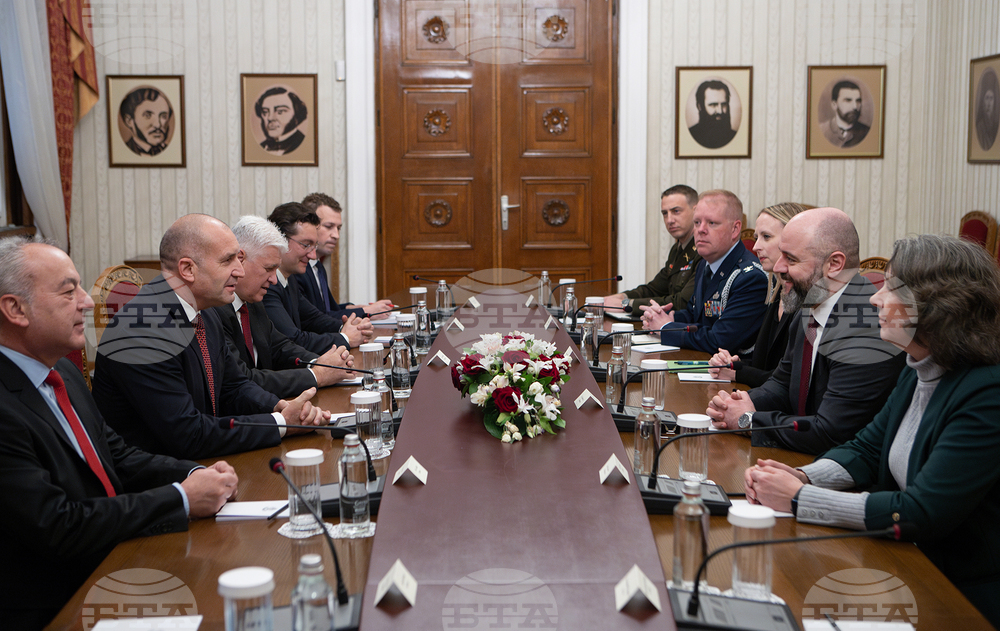site.btaPresident Discusses Armed Forces Modernization with US Deputy Assistant Secretary of Defense


The upgrading of the Bulgarian Armed Forces was the focus of a meeting between President Rumen Radev and US Deputy Assistant Secretary of Defense for European and NATO Policy David Baker, held in Sofia on Saturday. The discussion took place during Baker’s visit to Bulgaria following the arrival of the first F-16 Block 70 multirole fighter jet for the Bulgarian Air Force on April 2. Susan Falatko, Charge d'Affaires ad interim at the US Embassy in Sofia, was at the meeting as well, the President’s press secretariat reported.
Radev, who is also Supreme Commander-in-Chief of the Bulgarian Armed Forces, said the acquisition of a squadron of F-16 Block 70s is only the beginning of honouring the political commitment to the logistics, maintenance and building up of real defence capabilities in the Bulgarian Air Force.
The delivery of the first batch of eight fighters is expected to be completed by the end of 2025. The country looks forward to receiving another eight of them as soon as possible to put together a full-fledged squadron, the President said.
“To be able to operate the new F-16 aircraft successfully, Bulgaria needs duly trained military pilots,” he noted, raising the question of streamlining the training programme for Bulgarian military pilots in cooperation with the US. “If part of the training process takes place in Bulgaria and other countries in our region, it will be possible to train more pilots and will contribute to regional defence cooperation,” Radev suggested.
Under the plans and the agreements for upgrading the Bulgarian Armed Forces, initial supplies of Stryker armoured fighting vehicles for the Land Forces are expected later in 2025. Radev underscored the fact that many of these vehicles will be assembled in Bulgaria. According to him, this should be established as an approach to the modernization of the Armed Forces to boost industrial cooperation and enhance the role of the Bulgarian defence industry and science in the process.
“Bulgaria is developing its defence capabilities under the assumption that it is responsible for its own defence and security and should not rely entirely on its allies,” Radev said. He pointed to the country’s aspirations to adopt new military technologies with proven effectiveness, including unmanned aerial vehicles, which he said can be manufactured at home, opening another avenue for deeper cooperation with the US.
The President went on to say that the military crises close to Bulgaria’s borders are the main threat to the security and the stability of the region and have a strong adverse effect on the economies and the social systems of countries close by. He stressed the importance of developing Bulgaria’s devence potential and the strategic partnership with the US for strengthening stability in the Balkans and mitigating the negative impact of the crises in the region. Radev welcomed the efforts of US President Donald Trump and his administration to promptly end the war in Ukraine and described this conflict as the main threat to peace and security in Europe.
/VE/
news.modal.header
news.modal.text